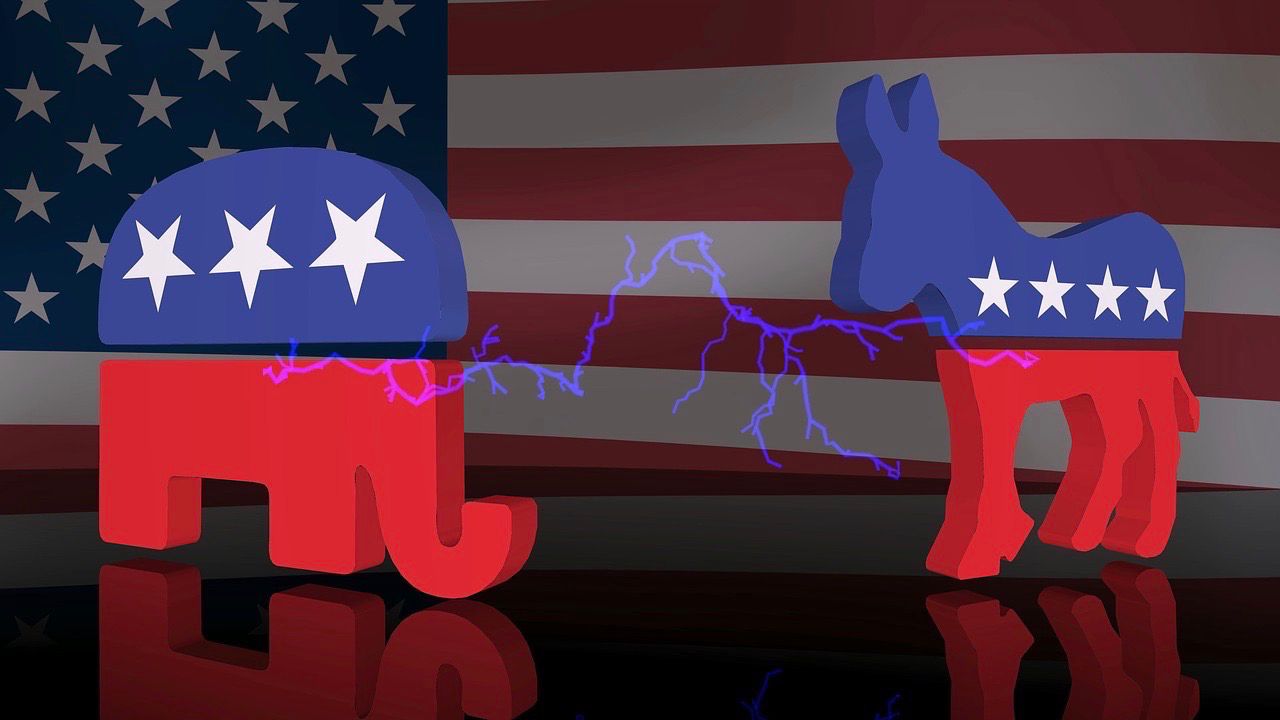TAMPA, Fla. -- Like nearly every other part of public life, the political world in Florida is effectively shut down. That means fundraisers and monthly party meetings are being postponed, and any campaigning is being done on the virtual level.
But surely the coronavirus outbreak will be contained by this summer and that the state’s August 18 primary election is still on, right?
Obviously, nobody knows that for certain, but that doesn’t mean that politics have stopped in the Sunshine State.
The strategy is different, says Pinellas County Chair Barbara Scott, but the messaging remains consistent.
“No direct voter contact, and switching that contact to digital to make sure that our voters have information and everything like that,” she says.
Kelly Dietrich, CEO of the National Democratic Training Committee, a group that trains Democrats who want to run for office or work on a campaign, issued a directive to fellow Democrats last week advising them that “people are not going to be attending fundraising events for the foreseeable future.”
But he also advised them not to cancel in-person events, but instead schedule virtual events using Zoom, Google Hangouts or another video conferencing app.
The memo advised campaigns not to bring volunteers into their offices but have them work remotely, but said it “is not impossible. It is an opportunity.”
The Pinellas County Democratic Party has cancelled their “Truth and Justice” annual fundraising dinner with Orlando area Congresswoman Val Demings originally scheduled for May 2.
Todd Jennings, the chairman of the Pinellas County Republican Executive Committee, said that his party’s annual Lincoln Day Dinner, tentatively scheduled for late April has also been scratched, and will probably be rescheduled for sometime this summer.
“We’re cancelling events and looking to push bigger fundraising events to later this year,” Jennings tells Spectrum Bay News 9.
St. Petersburg-based political strategist Barry Edwards says that the coronavirus outbreak is ultimately favorable to political incumbents in 2020.
“Say I got into the race to run against you,” Edwards said theoretically. “If I get in today, I can’t have a kickoff (event), because I don’t have all that energy. I’m not going to get the money from the kickoff. I can’t go door-to-door to get petitions, and I can’t go door-to-door to uh, convert people, I can’t go to club. I can’t go to rallies. So I might have to do it online, or on TV, or radio, which is expensive, if you don’t have the money for that, so you’re going to have to do it on the telephone – it’s not the same thing for someone who’s not known.”
There are some pending deadlines. For those who want to qualify by petition to run for congress in Florida, they have to submit those petitions by next Monday.
The deadline for congressional candidates, state attorneys, public defenders and judges to run is April 24.
This week Lakeland Commissioner Scott Franklin filed to challenge Republican incumbent Ross Spano in the CD 15 race.
Spano seized on the announcement as somehow being inappropriate, saying he found it “unsettling that Scott Franklin would choose to launch a campaign on the same day the City of Lakeland declares an emergency.”
This week Hillsborough County Democratic state Rep. Adam Hattersley hosted a Facebook Live event with a registered nurse to field questions about the novel coronavirus. It helped get his face in name out to address the public health crisis.
Hattersley is also running in the contested Democratic Party primary for congress in seat. His chief competitor in the primary is former television news reporter/anchor Alan Cohn.
“Social distancing might be a new term to us, but it will never mean we’re alone,” Cohn wrote in a letter to supporters to announce he was cancelling a major fundraising event. “It means, for the time being, we have to maintain a little extra physical distance while endeavoring to make our personal bonds.”
While fundraising for many candidates have dried up for the moment, the potential financial fallout from so many businesses shutting down could have implications for candidates later this year.
Edwards says “institutional donors” such as Florida Power & Light or Disney World will continue to contribute to political candidates, but individual donors may not have such discretionary income. “That’s going to have a big impact in the coming elections,” he says.
“Rallies, fundraiser, coffee klatch’s – those are out for at least another couple of months,” Edwards predicts.
He also says that candidates need to “restrain” themselves, and not sent out statements about COVID-19 regularly.
“You gotta be careful that when you put out information on coronavirus, that you make sure that it’s accurate, and let the people who are running the show. the administrators for the cities and the counties and the state, put it out. Everybody doesn’t need your opinion,” he says.



